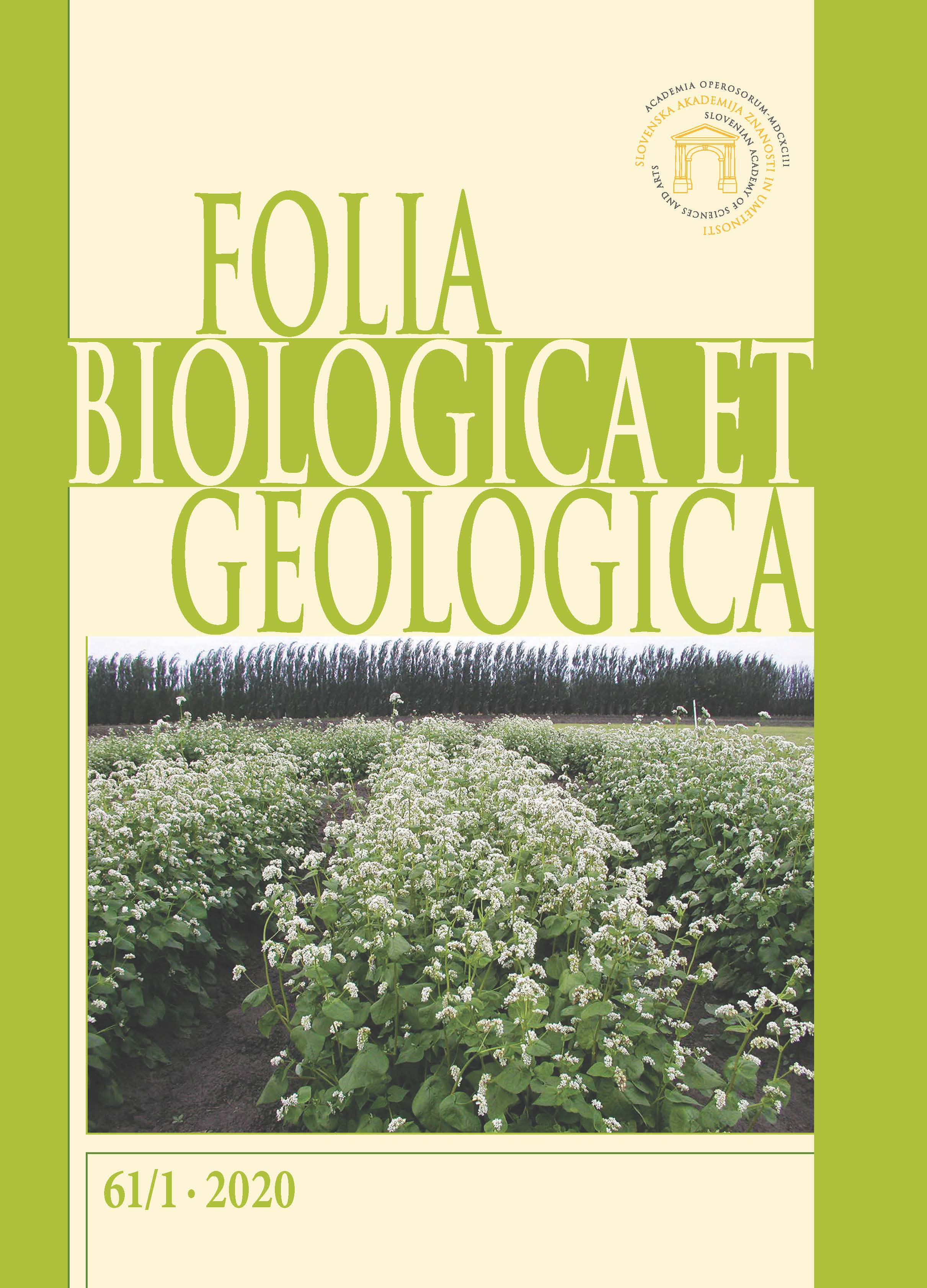Genetic characterization of buckwheat accessions through genome-wide allele frequency fingerprints / Genetska karakterizacija vzorcev ajde z odtisi frekvence alelov v genomu
DOI:
https://doi.org/10.3986/fbg0063Abstract
Genomics-assisted breeding of buckwheat (Fagopyrum esculentum Moench) depends on robust genotyping methods. Genotyping by sequencing (GBS) has evolved as a flexible and cost-effective technique frequently used in plant breeding. Several GBS pipelines are available to genetically characterize single genotypes but these are not able to represent the genetic diversity of buckwheat accessions that are maintained as genetically heterogeneous, open-pollinating populations. Here we report the development of a GBS pipeline which, rather than reporting the state of bi-allelic single nucleotide polymorphisms (SNPs), resolves allele frequencies within populations on a genome-wide scale. These genome-wide allele frequency fingerprints (GWAFFs) from 100 pooled individual plants per accession were found to be highly reproducible and revealed the genetic similarity of 20 different buckwheat accessions analysed in our study. The GWAFFs cannot only be used as an efficient tool to precisely describe buckwheat breeding material, they also offer new opportunities to investigate the genetic diversity between different buckwheat accessions and establish variant databases for key material. Furthermore, GWAFFs provide the opportunity to associate allele frequencies to phenotypic traits and quality parameters that are most reliably described on population level. This is the key to practically implement powerful genomics-assisted breeding concepts such as marker-assisted selection and genomic selection in future breeding schemes of allogamous buckwheat.
Key words: Buckwheat (Fagopyrum esculentum Moench), genotyping by sequencing (GBS), population genomics, genome-wide allele frequency fingerprints (GWAFFs)
Izvleček
Genomsko podprto žlahtnjenje ajde (Fagopyrum esculentum Moench) je odvisno od robustnih metod genotipiziranja. Genotipiziranje s spremljanjem sekvenc (genotyping by sequencing, GBS) se je razvilo kot fleksibilna in razmeroma poceni metoda, ki se jo uporablja pri žlahtnjenju rastlin. Uporabnih je več virov GBS za genetsko karakterizacijo posamičnih genotipov, toda te metode niso primerne za predstavitev genetske raznolikosti vzorcev ajde, ki jih vzdržujemo v heterozigotni obliki, kar velja za odprto oplodne populacije. Tu poročamo o razvoju GBS metode, ki, namesto prikazovanja bi-alelnega polimorfizma posameznih nukleotidov (single nucleotide polymorphisms, SNPs), pokaže frekvence alelov v populaciji na nivoju genoma. Ta prikaz frekvence alelov na nivoju genoma (genome-wide allele frequency fingerprints, GWAFFs) z združenimi sto posameznimi rastlinami vsakega vzorca se je pokazal kot visoko ponovljiv in je prikazal genetsko podobnost 20 različnih vzorcev ajde, ki smo jih analizirali v naši raziskavi. Metoda GWAFFs ni uporabna samo kot učinkovito orodje za natančen opis materiala za žlahtnjenje ajde, ponuja tudi možnosti raziskave genetskih razlik med različnimi vzorci ajde in omogoča zbirke podatkov. Nadalje, metoda GWAFFs omogoča povezovanje frekvenc alelov s fenotipskimi lastnostmi in kvalitativnih parametrov, ki so najbolj zanesljivo opisani na nivoju populacij. To je ključ za praktično uporabo z genomiko podprtega žlahtnjenja, kot je z genskimi markerji podprta selekcija in genomska selekcija z GWAFFs.
Ključne besede: ajda (Fagopyrum esculentum Moench), genotipizacija s sekvenciranjem (GBS), populacijska genomika, GWAFFs
Downloads
Published
Issue
Section
License
Copyright (c) 2020 Folia biologica et geologica

This work is licensed under a Creative Commons Attribution-ShareAlike 4.0 International License.





